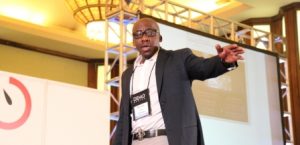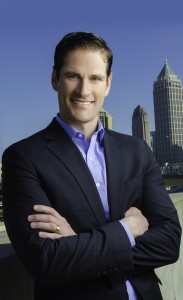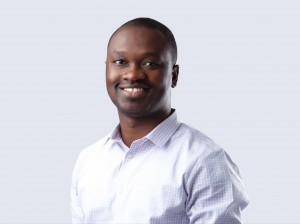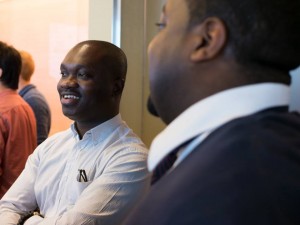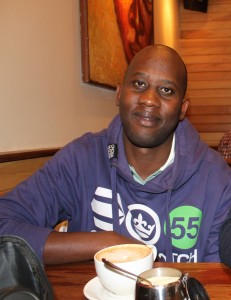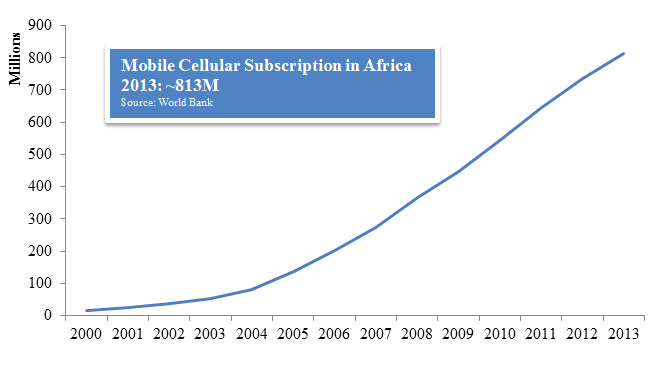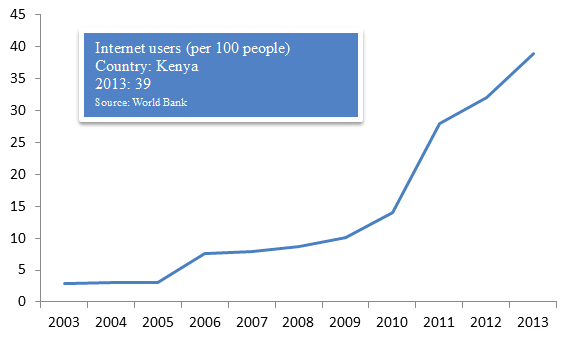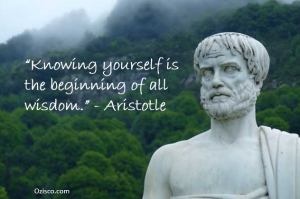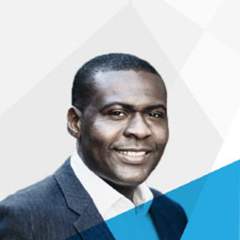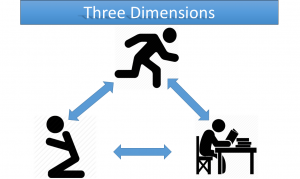 Hidden in the credits of any successful entrepreneurial story are small fonts of close calls, pivots, rejections, adversities, doubts, failures, etc. Ismail’s entrepreneurial story is no different. He is quick to tell you that the journey is just as important as the destination and having an unshakable self-belief, surrounding yourself with like-minded people, and working your a$$ off will get you farther than you’d expect. Ismail and his team are building a venture called Hingeto, to tackle inventory risk in retail. The Oakland, CA based startup has raised $1.9M in seed round funding to date, and are backed by Y Combinator (W16), Kapor Capital, Cross Culture Ventures, Precursor Ventures, Stanford University / StartX (S16), Comcast Ventures, Andre Iguodala, #blessed & Base Ventures. Hingeto launched with a limited-edition collection of bomber jackets designed by Oakland Raiders superstar, Marshawn Lynch. Ismail was kind enough to make time to share his story with the hopes of uplifting and inspiring other entrepreneurs. Enjoy!
Hidden in the credits of any successful entrepreneurial story are small fonts of close calls, pivots, rejections, adversities, doubts, failures, etc. Ismail’s entrepreneurial story is no different. He is quick to tell you that the journey is just as important as the destination and having an unshakable self-belief, surrounding yourself with like-minded people, and working your a$$ off will get you farther than you’d expect. Ismail and his team are building a venture called Hingeto, to tackle inventory risk in retail. The Oakland, CA based startup has raised $1.9M in seed round funding to date, and are backed by Y Combinator (W16), Kapor Capital, Cross Culture Ventures, Precursor Ventures, Stanford University / StartX (S16), Comcast Ventures, Andre Iguodala, #blessed & Base Ventures. Hingeto launched with a limited-edition collection of bomber jackets designed by Oakland Raiders superstar, Marshawn Lynch. Ismail was kind enough to make time to share his story with the hopes of uplifting and inspiring other entrepreneurs. Enjoy!
1. Briefly describe your background- education, work experience, etc. What is the most exciting or rewarding aspect of what you do now? What could make it even more exciting or rewarding?
I attended Stanford University and graduated with a Bachelor of Science in Electrical Engineering with a focus on Computer Software. In High school, I got my A Levels in Computer Science, Math, Chemistry & Physics. I started programming in my early teens. After graduating from university, I worked for a financial-technology company in San Francisco that was co-founded by Bill Harris (former CEO of Intuit & interim CEO at PayPal). After spending four years there, I decided it was time for me to work full-time on my own ventures given the success I had enabled for those I had consulted and advised on the side.
My focus is now on Hingeto, a YC company I co-founded. We’ve raised ~ $1.9M to tackle inventory risk in retail.
I also serve as Chairman of the Board of Big Wolf Games, a company I co-founded before Hingeto.
One of the most exciting & rewarding aspects of my current role is to see how the solutions we build based on our customer’s feedback make a difference in their livelihoods. I also, admittedly, love the power I have in being able to bring any idea to life (it remains exhilarating even after almost 20+ years of programming). What would make it more exciting & rewarding is to look in the room and see more people that look like me, armed with the skills to pursue their dreams the way I have been able to.
2. Flashback and then fast forward to the present, what has surprised you the most about your journey thus far? What advice do you have for others looking to take a similar path? Is there something you could have done differently to get to where you are faster?
My biggest surprise has been how methodical building a successful company can be, once you master certain core principles and strategies.
The biggest thing I would have done differently is that I would have saved a lot more money before going on the entrepreneurial journey so that I could avoid contract work while building my ventures. Luckily, while it’s worked out so far for me, I had way too many close calls earlier in the journey that could have been avoided had I invested in having 6 months – 1 year of income stashed away.
But at the same time for me, knowing my personality, not having that cushion, created the urgency I needed back then to be able to build fast, iterate fast, close deals, etc. I don’t think I’d advise other entrepreneurs to do the same, because for me, my “worst case” was that I would find a mini-gig to “re-up” if needed – which would derail me for a few weeks/months but I knew that if need be, I could hypothetically continue finding contract work indefinitely until I figured out the long-term money maker – although that would not have been ideal. I built relationships with some agencies that sent me opportunities all the time specifically for this purpose.
For others looking to take a similar path, I would tell them to start small right now. I’d advise them to begin absorbing everything they can about starting/building a business and to begin surrounding themselves with positive/like- minded-people. Most importantly, I’d advise them to start putting their learnings into action immediately, even if on a small scale. I’d advise them to focus on building mini ventures that can make $10/month, then $100/month, then $1000/month then $10,000/month then $100,000/month and so forth.
It is extremely difficult to predict the future success of your company, but what is more within your control is what happens within the next few months. Then after that, focusing on the next few months after that. And after that. And when you look back 1-2 years later, you’ll find a few things will have happened.
You will have achieved product-market fit on one of the experiments you were running
You will have success on some small (or even large scale)
You will fail, but those learnings will make you more enlightened for the next thing you work on.
You will have built confidence in variety of competencies that empowers you to be a better entrepreneur (or employee or employer)
3. Why is the cause you are pursuing or problem you are solving the most important for this generation? How would future generations benefit if it’s successful? What is at risk if you do not succeed?
Hingeto builds no-risk inventory solutions for large retailers & small brands, mainly in the fashion/apparel niche (primarily Streetwear).
A lot of people express their identity by what they wear on a daily basis. Even those not looking to make a fashion statement, express a lot about themselves by what they decide to wear and what not to wear. When my co-founders approached me with the idea they were kicking around (they previously worked at a $130M online retailer and understood the industry very well), I was somewhat hesitant about if this would be something I would be passionate about because I am not one that cared much about fashion at the time.
However, after discussing the idea a few more times & digging deeper into the macro & micro economic implications of the issues such as excessive waste due to excess inventory, shifting consumer shopping habits, business process & logistics issues experienced by large retailers, predatory sales practices that severely impact small brands (many of which were being run by minorities), my interest was piqued. I also realized that streetwear was arguably the biggest driver of fashion trends & culture, outside of luxury.
While these issues were multi-faceted & complex, we identified what we believed was the root cause of many of them: Inventory Risk. To that end, we are building valuable solutions to solve this from a few angles as it isn’t a one-size-fits-all problem.
I hope the work & impact we achieve with Hingeto will leave a lasting legacy & change the way small brands & large retailers work together and to foster a healthy ecosystem that allows all involved to thrive in the modern economy.
I am also the Chairman of the board of Big Wolf Games, a 6-person gaming venture I co-founded before Hingeto. While on the surface, gaming feels as though it provides no direct societal impact, one of the reasons I’m so passionate about games, is their ability to reach a wide audience across all socioeconomic/cultural/ethnic/language backgrounds.
Games also provide a temporary escape/reprieve from the day-to-day hardships many go through. I started programming in my early teens because I loved games so much & wanted to learn how to build them, so games have changed my life.
One thing about games is that building them requires the ultimate blend of a variety of highly skilled competencies (art, animation, engineering – client side & server side, psychology, emotion, user experience, product, etc.). Building a successful game is arguably one of the most difficult things to do, and hence, it is a challenge that stimulates me intellectually (even if I’m not the one writing the code).
Games we’ve built (both internally & as part of joint-ventures) are played by millions around the world which is really awesome. The revenue is also very nice (lol).
4. Reflect on all of the key sacrifices and trade-offs you’ve had to make to get to where you are today. Which of these would you say was the most pivotal and why?
I’ll speak about one big moment for me I had in addition to more general sacrifices/tradeoffs I’ve had to make during my entrepreneurial career.
The big moment was when I liquidated my 401(k) at the time (hence incurred early withdrawal penalties) as well as liquidating the FB stock I had at the time (which I bought right at IPO).
One on hand, these investments would have been worth a nice chunk of change today had I left them alone. However, at the time, I NEEDED the cash to get through another month of payroll, so I did what I had to do. I also always felt that the biggest investment I could ever make was in myself / ventures, and I wholeheartedly believed that I would make 5-10x whatever I was sacrificing by being able to “stay alive” for a few more days/months/years.
At that moment, I felt that it was best for me to withdraw from the stock market entirely and focus on $AIM (my initials & personal stock ticker :-p) & forego any upside I had from holding those positions.
Thankfully, that worked out for me. And thanks to the hustle, I put myself in a position where I’ve been able to generate several orders of magnitude more than what I forewent, but it was very very risky & I would never recommend anyone else do that (unless you have the same mindset and skills to be able to execute).
The next set of sacrifices is around lifestyle. Randi Zuckerburg posits that you can only pick 3 out of Work, Sleep, Family, Fitness, or Friends.
My biggest lifestyle sacrifices have revolved around my lack of balance across these 5 things, particularly early on in my career. In my early 20s, I neglected sleep, fitness and focused mostly on Work, Friends, and Family. I have paid the price for the lack of focus on my fitness & sleep (in the form of random health issues here and there), and I never got to focus on my family as much as I thought I would.
My rationale was always to work hard now (i.e. be in a position to retire in my 30s), so that I could focus on everything else later.
I realized the naiveté of this approach and shifted things in my late 20s where I sought to have more balance across all five areas because the journey was just as important as the destination. I have only recently (I am now 32) been able to feel like I am making real deliberate moves to achieve more balance across these key areas.
All in all, I disagree with Ms. Zuckerburg, and I believe there is a way to achieve balance across all five areas if one is deliberate about their time.
5. What is the best piece of actionable advice you’ve received that continues to be a source of inspiration in good times and challenging times?
One of my early clients from my consulting days once told me that the most powerful I could do with my ventures, is to give myself the financial runway to figure things out because it was just a matter of time before things start to click/work and that it wasn’t an “if it works” but more of a “when it works”. That has stuck with me.
A similar piece of advice I got during my track days at Stanford (unrelated to business) was during a time we were doing a stadium steps workout.
I was struggling badly & felt like quitting the workout, and one of my good friends/teammates said “Just take one more step man. And then one more after that & you’ll get there. Don’t think of how much more we have to do. Just focus on getting through the next step.. then next set and before you know it we’ll be done.”
I’ve taken that mindset shift and applied to many things that feel insurmountable at first.
Other things I do to get me through difficult times is to recite
If by Rudyard Kipling
See it Through by Edgar A Guest
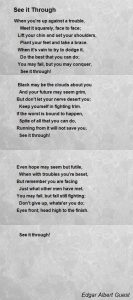
I have those two poems memorized completely and will recite them once or twice a week at any given point.
Connect with Hingeto








